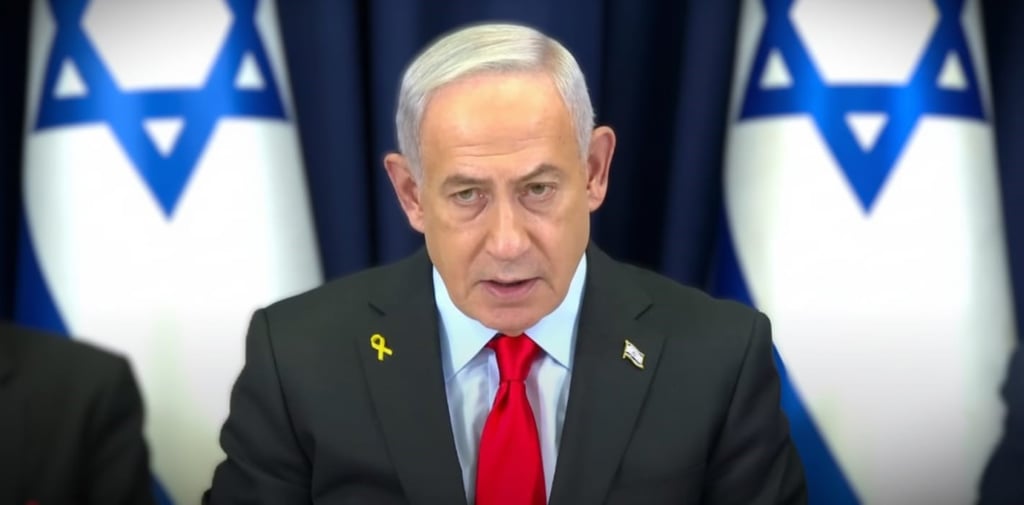Netanyahu Faces Far-Right Backlash Over Trump’s Gaza Peace Plan — Israeli Politics in Turmoil
Netanyahu faces far-right backlash for supporting Trump’s Gaza plan. Coalition tension grows as Israel’s political crisis deepens.
Raja Awais Ali
10/5/20252 min read


Netanyahu Faces Far-Right Backlash Over Trump-Backed Gaza Peace Plan
Israeli Prime Minister Benjamin Netanyahu is facing a new wave of political turmoil as his far-right coalition partners rebel against his tentative support for U.S. President Donald Trump’s proposed Gaza peace plan. The plan, aimed at restoring humanitarian aid, enforcing a ceasefire, and demilitarizing Hamas, has sharply divided Israeli politics and intensified the pressure on Netanyahu’s already fragile government.
Far-right ministers, including Bezalel Smotrich and Itamar Ben-Gvir, have condemned the plan as “a formula for national suicide.” They warned that if Netanyahu moves forward with any part of it, they would withdraw from the governing coalition, potentially collapsing the government. The backlash underscores the growing rift between Israel’s ultra-nationalist factions and Netanyahu’s efforts to navigate mounting international and domestic challenges.
Netanyahu, who has been under fire for his handling of the Gaza conflict, argues that certain aspects of Trump’s proposal — particularly the establishment of an international monitoring force and improved humanitarian aid access — could serve Israel’s long-term interests by reducing global criticism and diplomatic isolation. However, his allies in the far-right bloc view even limited cooperation with the plan as a dangerous concession that could empower Hamas and weaken Israeli deterrence.
Political analysts say Netanyahu is walking a tightrope between appeasing his domestic right-wing base and maintaining crucial ties with the United States and Europe. If his coalition partners follow through on their threats to resign, Netanyahu could face a political collapse and the possibility of early elections — a scenario that might end his record-setting tenure as Israel’s longest-serving prime minister.
The international community has reacted cautiously to Trump’s peace proposal. The United Nations and European Union have welcomed renewed talks but urged all sides to ensure the plan does not marginalize Palestinian sovereignty. Palestinian officials, meanwhile, have rejected the proposal as “a cosmetic plan that ignores occupation realities.” Arab nations are divided — Egypt and Jordan have expressed cautious optimism, while Iran and Qatar have denounced it as an attempt to legitimize Israeli control over Gaza.
As Netanyahu faces simultaneous domestic rebellion and international pressure, Israel’s political future appears increasingly uncertain. Observers believe this crisis could determine whether Netanyahu remains a dominant force in Israeli politics or becomes another casualty of the country’s deep ideological divide.
Ultimately, Netanyahu’s dilemma lies in choosing between political survival and diplomatic strategy. If he embraces Trump’s plan, he risks losing his coalition; if he rejects it, he could alienate key Western allies. Either path could reshape Israel’s internal balance of power and its global standing in the months ahead.
Stay informed with the latest national and international news.
© 2025. All rights reserved.